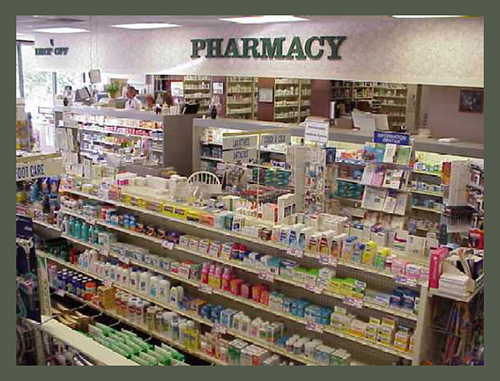The Bitterest Pill: Policing Pharmaceutical Crime. In spite of the all-encompassing coverage of the FIFA World Cup saga in Brazil, a more fundamental issue, the provision of universal health, is still making the world headlines: the UK Government faces calls to overhaul pharmacy regulation after a BBC investigation exposed numerous chemists illegally selling dangerous and addictive drugs; while the city of Yaoundé in Cameroon simultaneously hosted the fifteenth International Pharmaceutical Forum in a bid to rein in counterfeiters of pharmaceutical brands.
20 June 2014
24,161 views
No Comment

Pharmaceutical medicines and devices: the leading lights in the therapeutic management of diseases. The Bridge MAG. Image
Universal health concerns and patients’ safety remain among the thornier of topical issues and a huge challenge of our era, in a world where pharmaceutical brands are increasingly being targeted by counterfeiters.
Global life expectancies are at stake as a dangerous drugs trade impinging on the pharmaceutical mainstream has led to plummeting quality and safety standards in the UK and worldwide in recent decades.
According to the World Health Organisation (WHO):
“…up to 1 per cent of medicines available in the developed world are likely to be forged. This figure rises to 10 per cent globally, but in some areas of Asia, Africa and Latin America counterfeit goods can form up to 30 per cent of the market.”
More recently, on 22nd May 2014, the French branch of Interpol (based in Lyons) conducted the largest ever global operation targeting fake medicines. The operation led to 237 arrests worldwide and the seizure of nearly USD 36 million worth of potentially dangerous medicines. The operation was followed by the closure of thousands of illicit online pharmacies.
Ironically, in WHO’s recent report, it reads: “Everyone should have access to the health services they need without being forced into poverty when paying for them.”
Such a humanitarian view runs contrary to current political discourse: even in the UK, one of the world’s oldest universal health systems, the National Health Service (NHS), is being increasingly privatised under the current Conservative-led Government, while there are even suggestions that in future all patients –irrespective of incomes– may have to start paying to visit their GPs. Considering the NHS is already funded by taxation, this would mean patients would be paying to utilise health provision they have already paid for in the first place.

The Operating Room Equipment.
Equipment that fails minimum quality and safety standards should not be availability on the market The Bridge MAG. Image
One of the prime principles of the NHS when it was founded under Clement Attlee’s socialist Labour Government in 1948 was for universal health care “free …
Follow the links below to read more:
1)
2)
Rachel Tcheungna, Author, Writer of
The Bridge Books and
The Bridge Magazine Editor.

